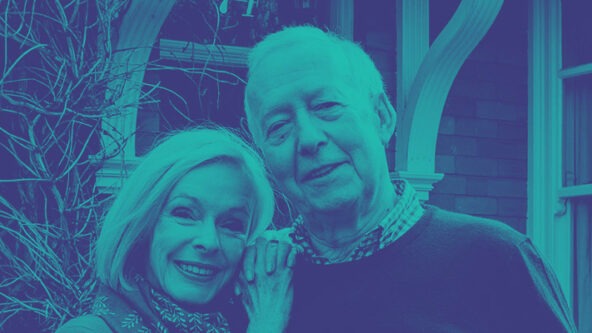Blog written by Philippa Johnson for Family Mediation Week, read more here…
I have chosen to share this part of my story because I believe that separation is a moment of absolute crisis. How we cope and work through that crisis shapes us and our children. When everything feels out of control and changing, we can choose how we make changes and whose feelings and priorities we put first. Mediation helps you do this in a secure and safe environment. It allows you to make a positive start for how you would like to relate to each other in the future.
My experience of my parents’ separation changed over time. My father often worked away from home, abroad for many months at a time, so we saw him intermittently and mainly at high points like holidays and celebrations. My parents maintained this contact after he moved out, and we even continued with doing things together when my parents had other partners. Despite this seeming togetherness, they continued to argue and there were always sticking points that proved difficult for them to negotiate. For example, I think my father would have liked to have had more contact with us, especially as we got older.
At one point he had a very proactive partner, who encouraged him to ask us to stay with him for part of the holidays. This was a chance to get to know our father better. She also encouraged us all as a family to go to family mediation (or perhaps it was called family conflict resolution?). This was primarily to help us as a family arrange holiday dates, which were often something, I think, perhaps in retrospect, my father felt left out from.
I remember meeting with the psychologists individually and then sitting as a group talking about what we would like best for the arrangements. I think I must have been in my early teens, or perhaps 11 or 12 years old. I really enjoyed the chance to speak objectively to someone about what I thought my parents’ dynamic was and how it affected my sister and myself. The psychologist asked how their behaviour made me feel and I also remember commenting on how I perceived their behaviour. They also asked how best we would like to arrange the holidays. They then gathered the opinions together and we resolved the holiday dates taking everyone’s wants and needs into account. I remember thinking it was incredibly civilized, and not feeling at all bad about making compromises, so long as we all understood each others’ needs and wishes. As a child I also wondered why all adults couldn’t behave like this and felt my own parents were gripped in a dynamic – why couldn’t they just unlock themselves from certain patterns of behaviour, where one person’s actions / words always triggered a known reaction? I could literally feel these actions and reactions approaching and would try to intervene. The mediators listened and they presented our views as important.
Separation is hard for everyone. Parents feel hurt. Children want to feel secure. They want to know that their parents can work together to parent them. Mediation can help separate out the issues and make different needs and desires clear. It can offer practical solutions at a time when everything feels messy and out of order and scary. Because it is based on working things out face-to-face it is also very good practice for the kind of relationship you want to establish with your ex-partner later on, something legal proceedings would not do. If my child had been older, I would also have liked him to be involved. My own experience of being taken seriously as a child by mediators was very empowering and let me feel like I was part of the decision-making process. It was good to be asked what I felt and wanted. While often having to witness their negotiations as arguments, I was allowed to take part in the decisions and see them working as adults respectfully together, with us.
My experience of mediation after my own separation has been very positive. Mediation puts the child’s needs at the centre, allowing parents to work out how best they can create a supportive environment for their children. After separation there will always be changes. Some of them will be hard to accept and we may worry about the impact on our children. Being able to act with respect for each other is the best example and gift we can give to our children. It makes children feel the changes are less scary. As adults, we have a choice to be the exemplary people we would like them to be.
MC, from London, has asked to remain anonymous; we are extremely grateful to her for writing this article for use during Family Mediation Week 2017.
We have Solicitors offices in Southampton, Hedge End, Chandlers Ford, Winchester, Lymington and Richmond-Upon-Thames.


